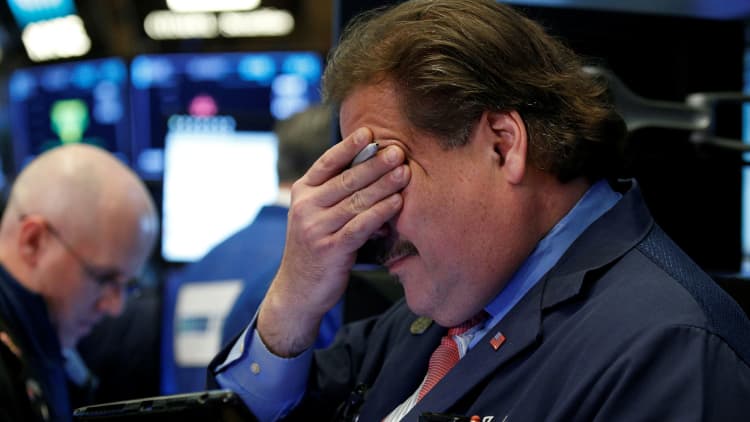
The market's increased volatility is a bargain shopper's dream, said Jeff Saut, chief investment strategist at Raymond James.
His choice stocks: financials, technology and industrials.
"I would stay away from the defensive names," Saut told CNBC, including consumer staples, utilities and telecommunications.
Monday's sell-offs, which left the S&P 500 4.1 percent lower and the Dow Jones industrial average down more than 1,175 points, caused a wave of panic to spread globally among investors. But James said stocks are functioning as expected.
"The market was set up to go down," he said on "Closing Bell" on Tuesday. "And you can pick your reason for why it went down: the FISA memo, the NAFTA stuff, the talks have stalled, backup in interest rates. ... But earnings keep going up."
"Typically what you get is a climax selling low," Saut said. "Which is what I think we got. Then you get 'turning Tuesday.'"
The stock market crashes of 1987 and 1989 were both on Mondays, Saut noted, followed by "turning Tuesdays" that changed the market's direction.
The Dow Jones industrial average, S&P 500 and Nasdaq composite all reversed course on Tuesday after a two-day sell-off that may have been fueled by fears of rising interest rates. The Dow closed 567.02 points higher, the S&P increased by 1.7 percent to 2,695.14, and the Nasdaq composite gained 2.1 percent.
"It looks like a picture-perfect recovery so far," Saut said.
But he warned investors that extreme gains may not continue.
"I think it comes back down, we get a double bottom, and then you're off to the races again," he said.
Interest rates should slowly increase and monetary policy will normalize as the economy stays strong, Saut said.


